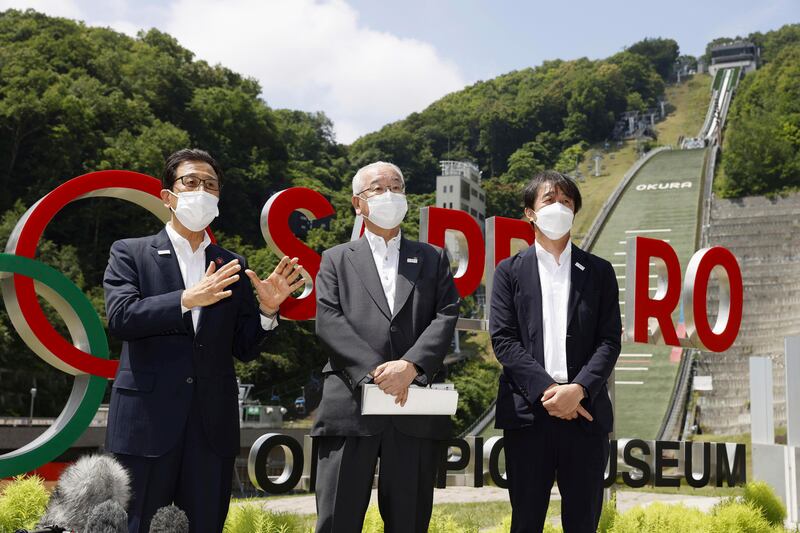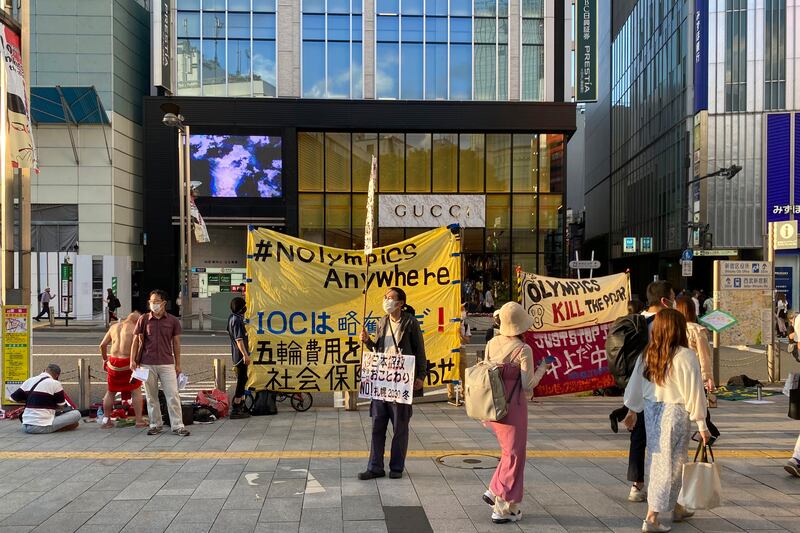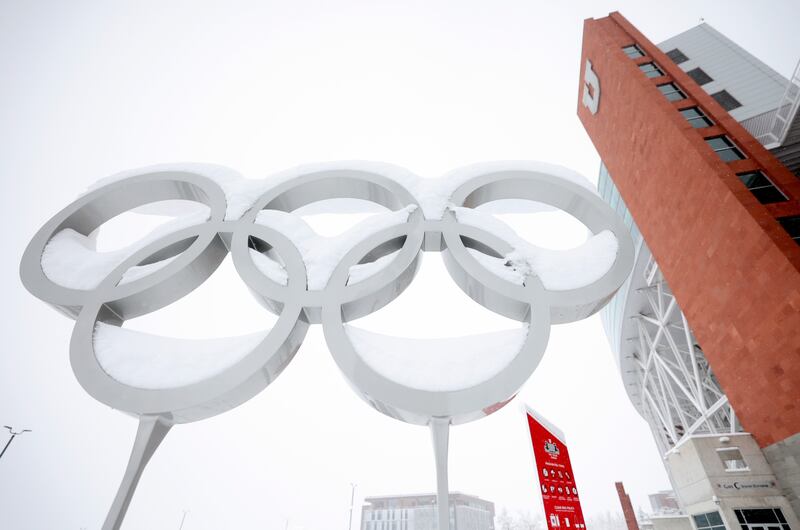Could Salt Lake City end up waiting to host another Winter Games until 2038 — or even later?
That’s a possibility now that Sapporo’s Olympic bid may move to 2034, a Winter Games that Salt Lake City had seemed likely to be awarded, said Mark Conrad, director of the sports program at Fordham University’s Gabelli School of Business in New York City.
“Everybody’s been saying Salt Lake, including me, would be a shoo-in for ’34,” when the International Olympic Committee chooses the hosts of the 2030 and 2034 Winter Games, likely some time next year, Conrad said.
Salt Lake is also bidding for 2030, but along with the U.S. Olympic and Paralympic Committee has stated a preference for waiting until 2034 to avoid any financial conflict with the 2028 Summer Games in Los Angeles.
But Salt Lake City’s no longer a sure bet, the professor said, if the Japanese Olympic Committee goes forward with an option announced Monday to push back Sapporo’s bid from 2030 to 2034 due to a lack of public support.
“Let’s say they do defer to ’34 and there’s some sympathy for Sapporo. Is Salt Lake guaranteed or would there be a move to push Salt Lake back to, like, ’38,” Conrad said, describing the race as suddenly much more fluid.
“If you asked me a couple of months ago, I thought for ’34 Salt Lake almost, almost would be a lock. But I don’t know if I’d go that far right now if Sapporo is going to defer a bid for ‘’34,” he said.
GamesBids.com producer Robert Livingstone came to a similar conclusion.
“Salt Lake City had seemed a lock to host in 2034 after United States Olympic and Paralympic Committee Chief Gene Sykes last month said that his organization and the IOC had the ‘same preference,’” Livingstone wrote Monday.
USOPC leaders have repeatedly said that the Olympics are coming back to Salt Lake City, which hosted the 2002 Winter Games, even after the IOC opened up bidding to new cities after postponing a 2030 pick last December.
Livingstone suggested there could be a major change in Salt Lake City’s situation, writing, “Should Japan retarget for 2034, Sapporo would become an opponent for Salt Lake City and set up a race that was never expected.”
The news that Sapporo could be bidding for 2034 comes after the IOC’s recent confirmation that new bidders for the Winter Games have emerged in addition to Salt Lake City, Sapporo and Vancouver, Canada.
The IOC won’t identify who else is in confidential talks about hosting, or even how many contenders there are. Sweden, already being called a front-runner for 2030, and Switzerland are the only new places so far to publicly acknowledge their interest in a Winter Games.
Fraser Bullock, president and CEO of the Salt Lake City-Utah Committee for the Games, made it clear there’s little interest at this point in looking at a bid for an Olympics for 2038 or beyond.
“Our focus is exclusively on 2030 and 2034. All of our bid contracts and materials are for those two Games editions. We believe we are well positioned with a strong bid,” Bullock said, pointing out it’s been more than 20 years since the U.S. hosted a Winter Games.
Asked what happens if the 2030 or 2034 Winter Games both go to other cities, Bullock said “it’s my team’s work to ensure we get one of the two editions. I don’t spend time thinking about that because I believe we will be awarded either 2030 or 2034.”

Many had seen Sapporo and Salt Lake City as the strongest 2030 bids, suggesting that Sapporo would be chosen to host in 2030 and Salt Lake City in 2034. However, that was before an Olympic scandal surfaced involving the 2020 Summer Games in Tokyo.
The impact on public opinion of that scandal, tied to bribery and bid-rigging at the Tokyo Games that were held in 2021 due to COVID-19, led to Sapporo’s bid being put on hold late last year.
Sapporo was expected to resume bidding after the northern Japanese city’s mayor, Katsuhiro Akimoto, won a third term Sunday over two challengers who both opposed the city, host of the 1972 Winter Games, trying for another Olympics.

“We will once again present citizens our plan to host a clean Games in Sapporo and will continue the discussion,” Akimoto told reporters, according to The Asahi Shimbun. “Eventually, we would like to proceed after confirming the opinions of citizens.”
But the president of the Japanese Olympic Committee, Yasuhiro Yamashita, said the Sapporo mayoral election “made it clear that many local residents are concerned and anxious” about another Olympics.
“It’s hard to go ahead with the original bid plan without gaining people’s understanding,” Yamashita said in bringing up the option of delaying the bid, Kyodo News reported. “We have to do things carefully. Otherwise, we can’t move forward.”
Exit polling during the Sapporo election found 53% of voters oppose the Winter Games bid, according to The Japan Times. Even among the mayor’s supporters, only 41% backed the bid while 31% opposed it and 28% weren’t sure how they feel about another Olympics.
In contrast, public support for another Olympics in Utah has remained strong. More than 80% of Utahns backed the bid in a Deseret News/Hinckley Institute of Politics poll in January.



